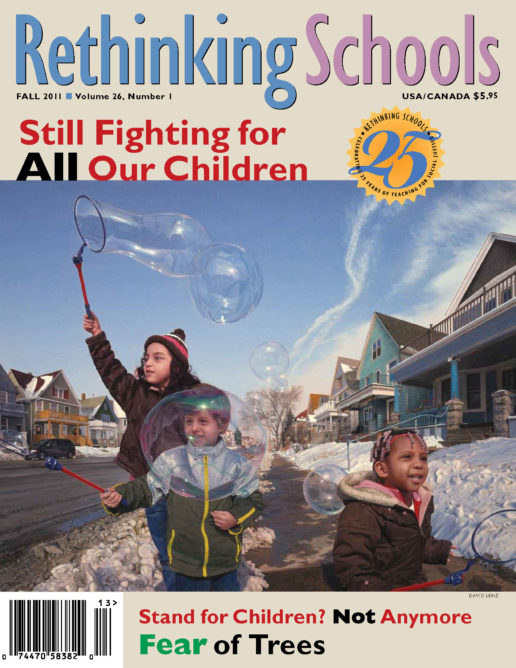Preview of Article:
What Do You Mean When You Say Urban?
Speaking honestly about race and students
Illustrator: Pete Yahnke Railand
Ethnic, inner city, urban. What do these terms mean in education?
I am a teacher educator who studies how people use language to talk about race. One word that I’ve examined over the past five years is urban. A quick look in the dictionary, and there is no surprise: Urban means related to the city, characteristic of a city or city life. So what does that mean when we say urban education? What is unique about city schools or city education? That depends on the city you’re talking about. In large, densely populated cities, such as Boston, New York, and Los Angeles, city schools are often characterized by large, diverse populations, many poor students, budget shortfalls, and bureaucracy. So why, then, do we use the term urban when what we really mean are schools with majority black and Latina/o populations?
Take for example my city: Portland, Ore. Downtown there is a high school named Lincoln. It is less than a mile from the Pearl District, a hip place that boasts unique food, shops, new condos, and the best of urban renewal. It is a stone’s throw from a soccer stadium and surrounded by tall buildings, people biking to work in suits, folks who routinely beg, and the hub of the public transit system.
Across the river in North Portland, there is a high school named Jefferson. It is surrounded by family dwellings, mom-and-pop shops, and wide streets for biking, walking, and playing. There is a community college across the street.
Which one of these schools is urban? Lincoln? Jefferson? Both?

